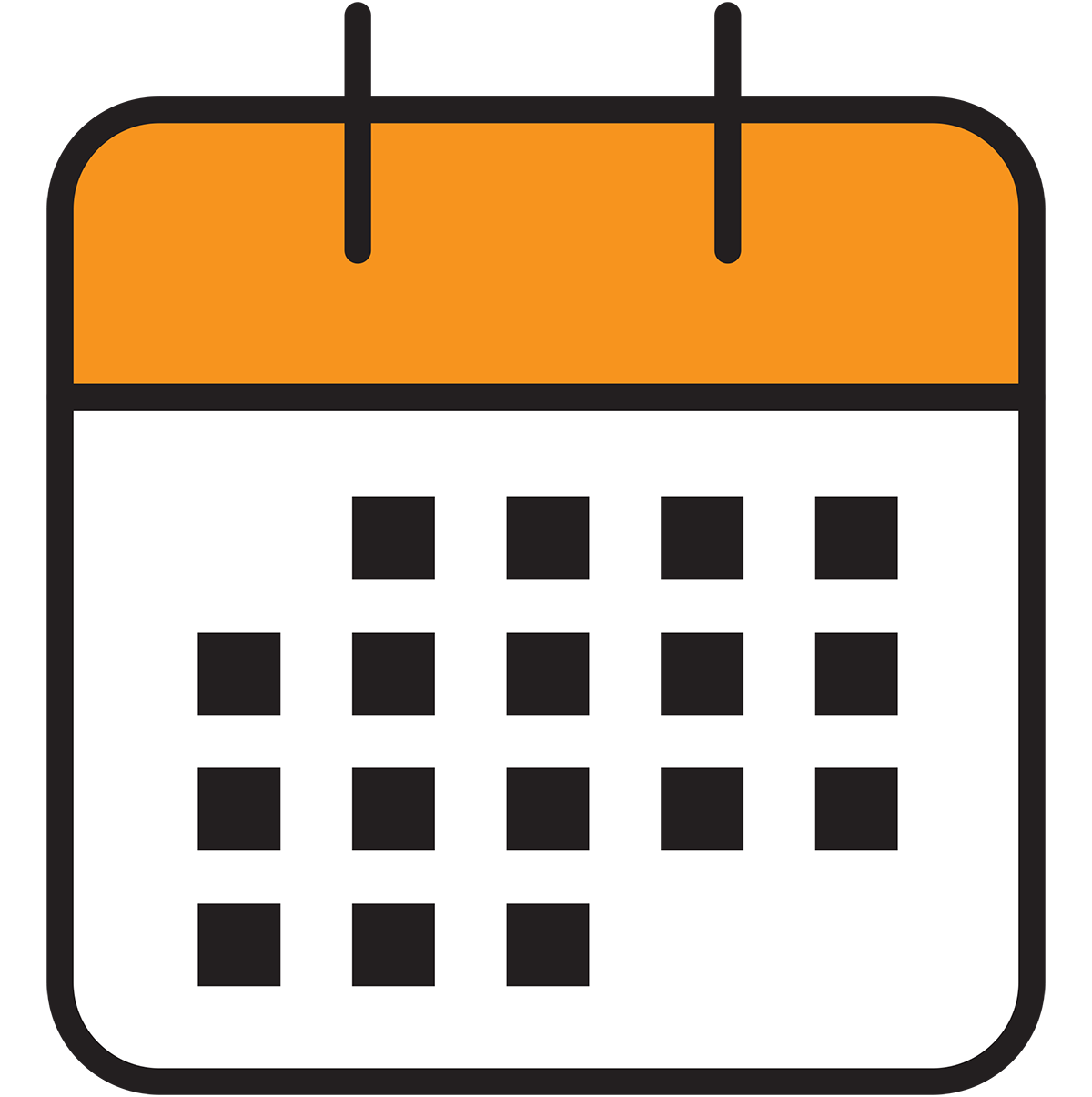Overview
Working at an intellectual property law firm can be exciting! Every day, we are immersed in our clients’ new and innovative technologies, cutting-edge inventions, and encounter unlimited and unbound creativity. You can be certain that a career in IP Law with MBM will be exciting, challenging, and rewarding. MBM’s client base is diverse, from startups to global corporations, and it covers constantly evolving industries like biotechnology, cleantech, AI, and telecommunications, among many others.
At MBM, we pride ourselves on having a culture where every employee is a part of the big picture but preserving each person’s individuality and unique voice. Our environment fosters open communication and ensures employees are empowered and engaged. Our cross-functional and collaborative structure provides excellent training and growth opportunities. We offer a unique, flexible working environment as well as competitive compensation and benefits packages.
During your articling period, you will have an opportunity to rotate through our three largest practice areas: patents, trademarks and litigation. On the professional development side, we encourage our students to attend educational seminars, external workshops and conferences related to their specific technical backgrounds. Your articling experience with us will be intensive and stimulating. Below is a snapshot of your possible experience in each of the three practice groups.
Litigation, Legal Opinions, Contracts, and Agreements Practice
In the litigation, legal opinions, contracts and agreements practice, you will assist the IP Lawyers with:
- Legal research
- Drafting contracts and licensing agreements
- Drafting cease-and-desist letters
- Drafting transfer and assignment of IP rights documents
- Listening to IP enforcement and litigation strategy meetings
- Listening to negotiations and settlement meetings
- Drafting patent validity and infringement opinions
- Exposure to litigation proceedings in front of all levels of Court, including the Supreme Court of Canada and the Federal Court of Appeal
Patent Practice
If, in addition to your law degree, you also have a technical or scientific educational background, then you can get experience with our patent practice, where you will assist the Patent Agents with:
- Drafting Patent applications
- Patent filing and examination process (prosecution) with the Canadian Intellectual Property Office (CIPO) and coordinating filing and prosecution worldwide
- Patent searches and freedom-to-operate opinions
- Exposure to patent monitoring, patent mapping and management of patent portfolios
- Due diligence and IP audits
- Listening to patent strategy meetings with clients
- Patent formalities
Trademark Practice
In the trademark practice, you will assist the Trademark Agents with:
- Trademark registrability and clearance searches
- Trademark application drafting and prosecution
- Trademark opposition proceedings
- Trademark watches
- Madrid treaty trademark applications and prosecution in Canada and worldwide
Building Your Professional Practice
Establishing good habits at the beginning of your legal career is paramount to successfully building your legal practice. At MBM, we try to prepare our students by:
- Providing in-depth training in at least one MBM IP practice
- Encouraging participation in networking and business development opportunities
- Teaching how to develop good habits in administrative procedures and systems
- Teaching how to develop good habits in time tracking, time entry and client billing procedures
- Encouraging students to write articles for MBM’s newsletter
Your Future at MBM
At MBM, you can choose from several career paths, including becoming an IP litigator, a Patent Agent (if you have an additional technical or scientific educational background) or a Trademark Agent. Check the “A Day in the Life” tab for a glimpse of each role’s day-to-day activities. No matter which career path you choose, we are committed to preparing our articling students for a successful career in intellectual property law.
Current Articling Opportunities
No current opportunities available… Please check back later.
Application Process
Our Current and Past Articling Students & Their First Impressions
Benefits and Perks
Overview
Working at an intellectual property law firm can be exciting! Every day, we are immersed in our clients’ new and innovative technologies, cutting-edge inventions, and encounter unlimited and unbound creativity. You can be certain that a career in IP Law with MBM will be exciting, challenging, and rewarding. MBM’s client base is diverse, from startups to global corporations, and covers constantly evolving industries like biotechnology, cleantech, AI, and telecommunications, among many others.
Each year, MBM is very fortunate to meet talented, bright, and driven students passionate about intellectual property, science, entrepreneurship and innovation. There really is no better place to gain rich exposure to all areas of intellectual property than MBM.
Current Summer Student Opportunities
No current opportunities available… Please check back later.
Application Process
Our Current and Past Summer Students & Their First Impressions
Benefits and Perks
Click any of the positions below to see what your day would look like at MBM
Grab my coffee from the MBM kitchen and check in with my supervising partner and senior associate about the project priorities for the day.
Email review: I continue my morning routine by reviewing emails and flagging those requiring a more urgent response, followed by setting daily priorities.
Legal research: A big part of my day is spent doing legal research for different client matters. This entails finding case law and legal precedents, reviewing current Canadian Patent and Trademark legislation and Rules, and reviewing other legal literature. My research is then normally used for litigation and opposition purposes to assist senior lawyers in building their cases.
Drafting legal documents: The second part of my morning is dedicated to drafting legal documents such as contracts, pleadings, affidavits, legal opinions, and cease and desist letters. I then work with the senior associate and partner to get feedback and make amendments.
Midday break for lunch: If I want some quiet time, I scroll through some news and social media on my phone while eating lunch or head out to lunch with my co-workers.
File management: following lunch, I do a bit of housekeeping by organizing and managing legal files on the secured client drives and in the docketing system, tracking deadlines, and ensuring all relevant materials and documents are properly stored and organized.
Administrative tasks: I also assist partners and associates with some administrative tasks, such as scheduling appointments, managing calendars, and handling routine correspondence with the courts and clients.
Court attendance: I sometimes get to attend court proceedings, hearings, and trials to observe and learn about courtroom procedures.
Observing at meetings: I periodically attend meetings with clients, opposing counsel, and other parties involved to gain exposure to negotiations and settlement discussions and learn from the senior lawyers.
Continuing legal education: When time and workload permit, I try to attend seminars, workshops, and other training sessions offered by MBM or external organizations.
At the end of the day, I submit my time into the docketing system and review my projects and priorities for tomorrow.
Every day is different depending on the projects and when my supervising partner/senior associate needs me, but it’s time to head home … it was a good and productive day!
Interview Tips
- 1Proofread Your Resume and Cover Letter. Have someone else proofread them, too. This may seem obvious, but applicants must always remember that resumes are what employers see first. You want that ‘first impression’ to be clean, concise, and professional, so check for typos, grammar mistakes, and other formatting issues that indicate a lack of attention to detail. And try to keep it to 1-2 pages.
- 2Know Your Resume. Since this is usually all your interviewer knows about you, they will dive into what they see. So, make sure you remember everything you put on your resume and are prepared to discuss it in detail if asked.
- 3Bring Your Resume. Always bring a copy of your resume and any other materials included in your application package; just in case the interviewer does not have a copy, you can show your preparation by providing them with one.
- 4Have a well-written and robust LinkedIn profile. The first place employers look after your resume is your LinkedIn profile. Make sure you have a well-written, up-to-date profile highlighting your skills and interests with a professional picture and as many sections filled out as possible.
- 5Don't Be Late. In fact, be early. Remember, from the moment you arrive, you are making an impression, so you want everyone to know you are serious about this job, you are a professional, and you respect the interviewer's time.
- 6Relax and Be Yourself. The firm wants to know "the real" you and see how you would fit into their culture. It is also an opportunity for you to evaluate if you fit/like their culture and will be comfortable at that firm.
- 7Be Confident. You have already been chosen for an interview, so the firm thinks you have the qualities of a good candidate; now, you need to show them why you stand out from the rest. Be confident in your abilities without being arrogant; this is your time to sell yourself to the firm; remember, they want to see the person they will be putting in front of clients.
- 8Dress Professionally. They always say – "dress for the job you want, not the one you have", and since you are currently a student and you want to work as a professional in a law firm, dress like one! But here's a tip: dress comfortably; this is not the time to try out a new outfit or shoes; you don't want to be fidgeting throughout your interview. And go easy on the colognes or perfumes; remember, a little goes a long way!
- 9Be Professional. The interview is your first impression, and you want to make a great one. Your handshake, eye contact, smile, clothing, speech, and overall body language will show the firm how you intend to handle yourself in professional situations. Therefore, try your best to manage your body language during your interview.
- 10Do Your Research About the Firm. Prepare for your interview by learning about the firm, the people at the firm, the leadership, some of the interesting cases they have litigated, and any other interesting facts that you can discuss during your interview. Check out the firm’s social media, which can be a source of information, in addition to the firm’s website. It becomes very obvious, very quickly, if you don’t know much about the firm, and it shows a lack of interest, enthusiasm, preparedness and professionalism.
- 11Know Why You Want to Work for the Firm. You will be interviewing with several firms, so make sure you know why you want that particular firm. What piqued your interest? Why would you like to work there? Make sure to share those reasons in the interview; it will show your enthusiasm for the role and the firm.
- 12Do Your Research About The Interviewers. If possible, find out who will be interviewing you and do some research on them. You will be more relaxed and find it easier to chat if you feel like you already know a bit about the person. But always remember that things happen, and you may not be interviewing with the person you expected, so be prepared to go with the flow.
- 13“Tell me about yourself” – The Dreaded Question. This should be easy, but for most people, this is probably the most challenging question they’ll be asked. What is your personal elevator pitch? How do you sum up the highlights of your career/resume? How do you sound confident but not arrogant? How do you tell them about your skills most relevant to the job description so they see how well you fit for the job? Be prepared for this question, practice your answer over and over, try not to ramble, and make sure you stick to under 5 minutes.
- 14Prepare and Practice Some Answers in Advance. There are many commonly asked interview questions that you can prepare for in advance. Practice your answers and say them out loud; this will help you gain confidence and be more relaxed during the interview process. Keep in mind that your interviewer already has your resume, so when they ask questions about education or extracurricular activities, make sure you use the opportunity to answer these questions with more detailed and interesting responses than just the facts from your resume.
- 15Always Ask at Least One or Two Questions! At the end of the interview, you will be given time to ask your questions; come prepared. You could ask about the responsibilities students have, the firm’s culture, the interviewer’s career, something that was discussed during your interview, or something you’ve learned during your research about the firm. This is your time to showcase your communication skills, energy, and active interest in the role and the firm.
- 16Check Your Social Media Presence. At some point, someone at the firm will stumble on your social media accounts, Facebook, Twitter, Instagram, TikTok, etc., so review your public profile and posts, think about what they will see and if that is the image you would like the firm to have of you. Alternatively, if you don’t want to worry about someone checking your social media accounts, make sure that all your profiles are set to private mode.
- 17Don’t Forget to Send a Thank You Email. Make sure you have all the interviewers’ contact information so you can quickly send a thank you email. Send it right away while things are fresh in everyone’s mind, and personalize the email; don’t just be generic. You want to stand out and be remembered!
Tips During Your Articling
- 1Take a lot of notes. Keep a notepad on hand at all times. You will not remember everything; no one does, which is why you must write things down. You should get into the habit early on in your career of taking detailed notes every time you are on a call with your supervisor or a client, if you are called into an impromptu meeting, given instructions while standing at someone else’s desk or even heading out to lunch with your co-workers. Having a notepad on hand helps. The more detailed the notes, the easier it will be for you to meet the assignment expectations of the senior lawyers and coordinate work when working on a matter as a team. This “detailed note-taking” habit will serve you well in your career!
- 2Ask Questions. This does not show weakness. You are new to the firm and the role; no one expects you to know what to do, so don’t waste your time (and everyone else’s time) by not asking for clarification if you are unsure about something. Often, asking a colleague for some guidance can save you hours of work.
- 3Get it in writing. Sometimes, instructions are given quickly on the fly, and there’s no time to ask questions verbally, so always confirm the instructions you have been given over email. After you get the instructions from the lawyer, send an email confirming all the points and asking clarifying questions to ensure you have not missed anything. That way, you will never end up not delivering ‘exactly’ what was needed.
- 4Be Clear On Deadlines. This means asking what the deadlines are, determining if they are flexible and then ensuring you do everything you can to meet them. It may seem straightforward, but meeting deadlines can often be challenging, especially when some supervising lawyers have unrealistic expectations. Once you have the deadline, set your own work timeline, building in some extra time for questions and any other issues that may cause delays. As you progress through the project, keep in mind that if you don’t think you will make the deadline, let the lawyer know as soon as possible so they can help or provide additional resources. Sometimes, senior lawyers forget how long it will take an articling student to complete a task, so speak up and ask for help; that way, you will avoid missed deadlines and have aligned expectations.
- 5Learn how to prioritize well. You need to be able to determine what you can handle to produce high-quality work, so you need to prioritize your projects and tasks based on the given deadlines. If you have some conflicting deadlines and think you won’t be able to achieve them, ask the senior lawyer or mentor to help you prioritize your projects and, if needed, add more resources to resolve a deadline conflict.
- 6Stay organized. Set up systems to keep yourself organized from the beginning, such as colour-coding your emails and setting up task reminders in your Outlook. Things will move quickly, and you will be given lots of work, and it is your responsibility to stay organized to meet deadlines.
- 7Every draft you provide should be free of grammar and spelling mistakes and well formatted. Whether it is an email, letter or presentation, always ensure you deliver a clean draft … even if it’s the first draft! It will show the senior lawyer that you have good attention to detail and care about your work.
- 8Find a mentor or several mentors. Some law firms have formal mentorship programs, others are more casual about assigning mentors, and sometimes, you are on your own to find a mentor. At this stage of your career, it is essential to start looking for senior lawyers with extensive experience in areas that interest you and who might help you in your career development. You need to find mentors who will help guide you, share their experiences, be honest and even critical, if necessary, be a sounding board for all your questions and concerns, and be happy to celebrate your successes. Remember, you can have several mentors for different purposes, for example, one to answer all your legal questions and one to help with professional and career goals. Having a mentor can be a tremendous resource that will be beneficial throughout your career and life. And one day, you may be asked to be a mentor for someone else, and you will remember how valuable it has been for you.
- 9Ask for Feedback Often. Some articling students are afraid to ask for feedback because they feel ‘no news is good news’; others are afraid to ask because they don’t want to overstep their position, but asking for feedback is an integral part of your learning. For example, when a senior lawyer or patent agent gives you an assignment or specific task, you should proactively follow up after you submit your work to discuss the quality of your work and how you can make improvements. Are there tasks that could have been handled differently? Did you provide the work in the format they requested? Having that feedback will help you improve your future work and grow professionally.
- 10You Received Harsh Feedback – Try to Learn From It. If you receive harsh feedback, don't take it personally. Take a breath. Keep in mind that people have different communication styles, so focus on the content of the critique and see what you can learn from it to improve future work. Remember, you will make mistakes, and that's okay. You don't learn from the easy situations; you learn from the hard ones.
- 11Take Responsibility and Accountability for Your Work. Let's be clear: you will make mistakes; you are just starting your career and don't know everything. Whew, now that is out in the open, there are some important things you should know. Mistakes happen; as a professional, the earlier you catch and address them, the better. If you take accountability for your error, you are showing your team that you are a professional, you are trustworthy, and that you take responsibility for your mistakes, all characteristics of a good lawyer.
- 12Build Your Professional Profile. This is your time to start building your professional profile and showcasing your ability to research and produce high-quality content in the form of articles and white papers. Most firms have a blog or a newsletter for which they need article ideas. Proactively approach a senior lawyer, offer to write an article, and provide a few topic suggestions. Use this opportunity to enhance your resume.
- 13Develop Professional and Personal Goals. During your articling, it is the perfect time to think about your future career and create an outline of your goals. How do you see your career a few years from now, and how do you plan to get there? Set small milestones for yourself, like writing and publishing an article or volunteering for a firm committee. While you ensure your professional goals are on track, don't forget to set personal goals, too, like developing a new hobby, volunteering with a community organization, travelling or any activity that adds to your life experiences.
- 14Be Visible. When you start your articles, make an active effort to introduce yourself, let people know who you are, tell them a bit about yourself, and get to know them. Also, volunteering for a project or attending a firm event allows you to become more visible to your colleagues and the senior team, allowing them to get to know you and your work ethic from the start. And try not to leave at the end of the day before your boss does.
- 15Participate in professional development and networking opportunities. Every law firm offers different professional development and networking opportunities to their articling students, so make sure to ask what is available. Some firms will provide access to seminars, workshops or online courses. Also, ask if you can attend or listen to client meetings and during trials to gain as much experience as possible during your articles. Always make sure to participate in social firm events and networking opportunities so you can get to know people in a more casual environment and, at the same time, start building business relationships in the industry.
- 16Be Kind to Everyone, Always! This is a fundamental life reminder: be kind and treat everyone with respect. As an articling student, you are new to the firm and need all the friends you can get. Many of the paralegals and assistants you will be working with have been with the firm for years and know more about the ins and outs of how things work within the firm; they can be of tremendous help to you. You will be learning from everyone at the firm, not just the lawyers, so always appreciate those around you and be kind.
- 17Take Care of Yourself and your Physical and Mental Health. Everyone talks about finding balance, but what does that really mean? For an articling student, it means taking time for yourself, maintaining your fitness routines (if you don't have one, start one!), and finding ways to stay connected with family and friends. When you begin articling, you will feel like you need to be "on" all the time. You don't want to burn out in your first two months. This is going to be a challenging year with long hours, and for some, living away from home makes it even harder, so don't neglect your personal relationships. It will help you stay grounded. Call your parents and FaceTime your best friend; you'll feel so good you did.
- 18Work to make each day a little better than the one before. At times, articling can seem overwhelming, and you may feel like you are in over your head, but keep in mind that you are just starting out, and no one is expecting you to handle it all. Focus on smaller things you did better today than yesterday; it could be as simple as remembering someone’s name or finishing a task faster. Take the small wins to keep yourself motivated. You’ve worked hard to be here, and now try to make yourself better each day.





















